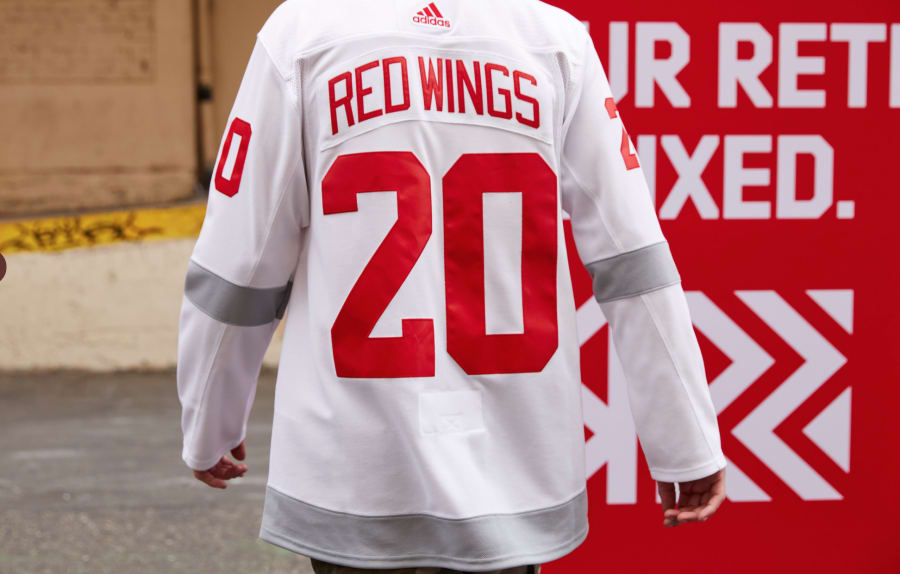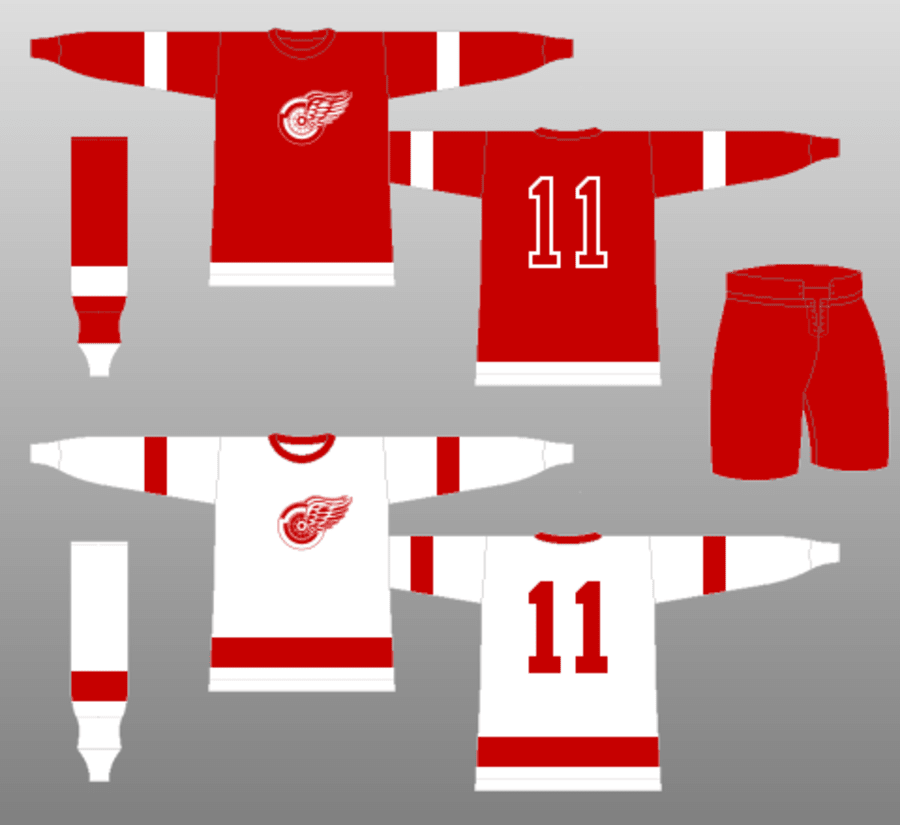NHL teams revealed Adidas’ new line of “Reverse Retro” jerseys this week, and it seems like they forgot to make one for the Detroit Red Wings. 🤔
Recommended Videos
I wish.
Instead, they very much remembered to make one for the Red Wings, although it appears they forgot to start working on it until the night before it was released. Yep, it’s that bad. To call it a practice jersey might be offensive to practice jerseys.
It’s a white jersey with the logo, red numbers and lettering, and three gray (silver maybe?) stripes -- one on each arm and one around the torso. You can vote and tell me what you think about it here.

This is the best they could come up with for a team with such rich history like the Red Wings?
I understand the franchise has had otherwise simplistic uniforms that have stayed fairly consistent since the 1940s, but we’ve seen so much better recently with the Winter Classic, Stadium Series and Centennial Classic uniforms (that one from 2017 is the only other uniform in Detroit’s history that used gray, or silver if you must).
Apparently this new Reverse Retro jersey is some kind of nod to the 1998 team’s Stanley Cup championship (the silver stripes?) and, well, I am not sure. Here’s what the Red Wings’ uniforms looked like back in the 1930s, courtesy of NHLUniforms.com (I love this website, btw):

This white sweater -- it was definitely a sweater, not a jersey, back then -- has the three bar stripes: Two on the arms and one around the torso. The sleeves on the white jersey stayed white with a red stripe, as opposed to how the team’s whites actually have red sleeves with white stripes today. You might not realize that until you take a second look.
The 1930s uniform is the closest I could find in the history of the team’s uniforms to whatever they’re trying to do with this new one. This 1930s kit also featured the old, “chunky” winged wheel, which the team used until a logo facelift in 1948. It would have been cool to bring back the chunky winged wheel. I mean, just bring back this 1930s uniform. Period.
I’m disappointed, as you can probably gather. Yes, believe me, I have way more important things to be concerned about -- as I am sure you do, too -- than special edition NHL jerseys. However, if we’re going to do this, let’s do it right. Give us something that at least looks like more thought was put into it.
You can check out the rest of the NHL Reverse Retro jerseys here. There are so many good ones. There are some other letdowns, too.
These jerseys are expected to be worn “multiple times this season,” the league says. They go on sale Dec. 1.
New NHL season? 📅
Yes, speaking of the season, it’s supposed to start Jan. 1. But is that even realistic at this point?
Here’s the latest from NHL insider Elliotte Friedman on negotiations between the league and the players:
“If anyone was hoping major details about the 2020-21 season would be settled by the weekend — yeah, that’s not happening. My personal belief is that if the season is to begin Jan. 1, a deal needs to be reached by the end of the month. Hopefully sooner, but if some things have to be rushed, they’ll be rushed. Wednesday’s events knocked things off course, and the players will need a few days to regroup. They are angry and feel betrayed.
I have a clearer picture now as more details emerged overnight. In the new CBA ratified last July, there were agreements on deferred money for 2020-21 and escrow caps during each season of the agreement.
Players agreed to a 10-per cent deferral for the upcoming year. Escrow caps are: 20 per cent for 2020-21; 14-18 per cent (although everyone assumes it will be 18) in 2021-22; 10 per cent in 2022-23; and six per cent for the remaining three seasons. (A one-year extension will be tacked on the end of the CBA if the players owe the league between $125-$250 million after 2024-25; the cap on that would be nine per cent.)
According to several sources, the league submitted two proposals. The first asked for changes solely to the upcoming season. Deferred compensation went to 20 per cent; escrow to 25. There were no other alterations.
The second asked for deferred compensation to be raised to 26 per cent for next season. Escrow was not touched until years four-to-six of the CBA, rising from six per cent to between 8.5 and nine.”
Temporary division realignment
If and when the season begins, there likely will be quite the shakeup in the divisions due to COVID and the Canada-U.S. border closure. We should expect a division of all Canadian teams and the teams in the U.S. to shuffle into more travel-friendly groups.
Here’s what it could look like, according to ESPN’s Greg Wyshynski:
From today's column on ESPN+, this is what I'm hearing for potential divisions for the NHL 2020-21 season: https://t.co/RCLTYW6NZ2 pic.twitter.com/9dEuj1TUCx
— Greg Wyshynski (@wyshynski) November 19, 2020
This suggests Detroit would be back in a division with the Chicago Blackhawks and St. Louis Blues. That would be kind of cool for a season. This would also put Sidney Crosby’s Pittsburgh Penguins in Detroit’s division.
This is cool. I appreciate this. Teams should expect to be playing within their divisions quite a bit. The league will be trying to keep travel as limited as possible, at least at first. We might even see weekend meetings like college hockey does -- perhaps the Penguins spend a Friday and Saturday in Detroit for a double-header weekend, or something like that. Hub cities also are on the table.
“We are exploring the possibility of playing in our own buildings without fans (or) fans where you can, which is going to be an arena-by-arena issue,” Bettman said, according to an ESPN.com report. “But we’re also exploring the possibility of a hub. You’ll come in. You’ll play for 10 to 12 days. You’ll play a bunch of games without traveling. You’ll go back, go home for a week, be with your family. We’ll have our testing protocols and all the other things you need.”
This will be interesting if they can make it safe and get it going smoothly. We shall see.
Red Wings roundup Nov. 16: New roster, key signings, draft recap, more

